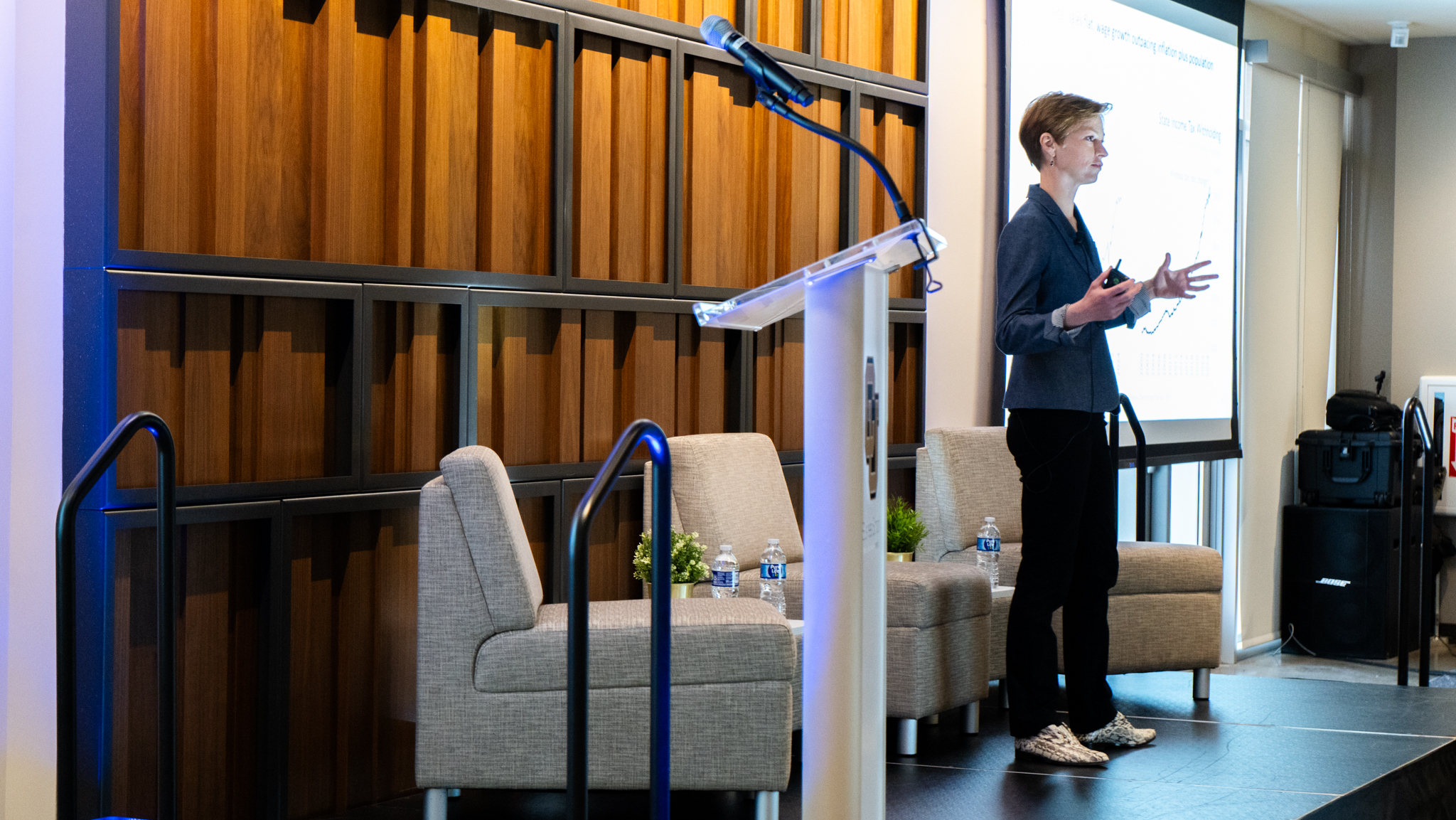The transient nature of the economy can be daunting to some and incomprehensible to others. Luckily, the CU Denver Business School hosts an annual economic forecast event where experts predict upcoming trends and pain points to monitor. This year, the Business School was joined by Ellen Zentner, ‘95, the chief U.S. economist and managing director at Morgan Stanley, and Kate Watkins, President and Chief Economist at Bright Fox Analytics and Professor at the CU Denver Business School.
Watkins took note of Colorado’s economic situation in particular. Colorado has a strong economy and, when compared with other states, is usually a top performer. However, it’s beginning to slip, primarily due to affordability. Colorado outpaces the nation in home prices and is starting to affect the local economy. Affordability issues have caused a slowdown in job growth and migration to Colorado. There has also been a slowdown in registering new businesses, resulting from decreased affordability and increased business regulations; however, it is still going in a positive direction. “We’ve seen some slowdown in new business growth, that said, it’s still moving in a positive direction.” Tipping hats to a post-pandemic shift from goods to services consumption, Watkins also reported that sales tax collection has leveled off.
“We’ve seen some slowdown in new business growth, that said, it’s still moving in a positive direction.”
Kate Watkins
In her presentation, Zentner zooms out and focuses on the national economy, concentrating mainly on the economic impacts of immigration. Immigration creates winners and losers in the global economy, and according to Zentner, the United States is a winner due to immigration causing a positive supply-side shock and increasing demand in the economy. The population boost that immigration brings also helps offset declining U.S. birth rates and contributes to labor force growth. Sustained immigration, however, necessitates a higher number of jobs to absorb the population flux, and this has caused the unemployment rate to drift slightly upwards. Zentner also predicted that the Federal Reserve would be confident in cutting interest rates between 1.5 and 3 times in July and that a hike would be unlikely.
The insights Zentner and Watkins provided are invaluable. These bright weatherwomen forecasted the many shifts in the economy to come. Many young adults are overwhelmed by the economy; with student loan debt as the second highest consumer debt category, it’s easy to see why students may feel the economy is inaccessible. However, Millennials and Gen Z are rising to the challenge. 69% of Millenials and 73% of Gen Z reported getting serious about their financial planning before age 35, compared to only 49% of Baby Boomers. Events and workshops, like this economic forecast, demystify the economy and empower individuals with tools and skills to seize control of their financial futures.

